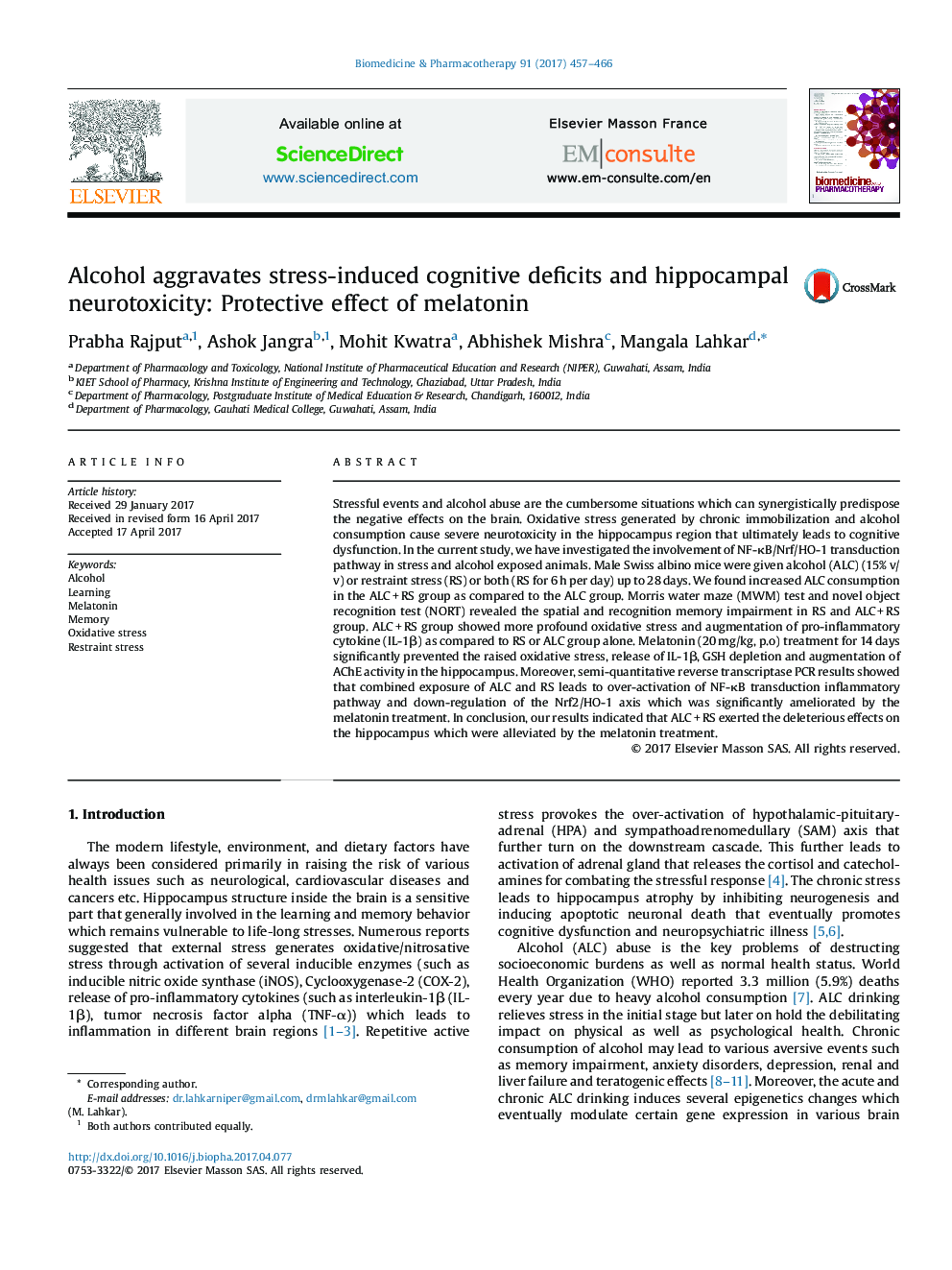| Article ID | Journal | Published Year | Pages | File Type |
|---|---|---|---|---|
| 5552962 | Biomedicine & Pharmacotherapy | 2017 | 10 Pages |
Abstract
Stressful events and alcohol abuse are the cumbersome situations which can synergistically predispose the negative effects on the brain. Oxidative stress generated by chronic immobilization and alcohol consumption cause severe neurotoxicity in the hippocampus region that ultimately leads to cognitive dysfunction. In the current study, we have investigated the involvement of NF-κB/Nrf/HO-1 transduction pathway in stress and alcohol exposed animals. Male Swiss albino mice were given alcohol (ALC) (15% v/v) or restraint stress (RS) or both (RS for 6 h per day) up to 28 days. We found increased ALC consumption in the ALC + RS group as compared to the ALC group. Morris water maze (MWM) test and novel object recognition test (NORT) revealed the spatial and recognition memory impairment in RS and ALC + RS group. ALC + RS group showed more profound oxidative stress and augmentation of pro-inflammatory cytokine (IL-1β) as compared to RS or ALC group alone. Melatonin (20 mg/kg, p.o) treatment for 14 days significantly prevented the raised oxidative stress, release of IL-1β, GSH depletion and augmentation of AChE activity in the hippocampus. Moreover, semi-quantitative reverse transcriptase PCR results showed that combined exposure of ALC and RS leads to over-activation of NF-κB transduction inflammatory pathway and down-regulation of the Nrf2/HO-1 axis which was significantly ameliorated by the melatonin treatment. In conclusion, our results indicated that ALC + RS exerted the deleterious effects on the hippocampus which were alleviated by the melatonin treatment.
Related Topics
Health Sciences
Medicine and Dentistry
Oncology
Authors
Prabha Rajput, Ashok Jangra, Mohit Kwatra, Abhishek Mishra, Mangala Lahkar,
